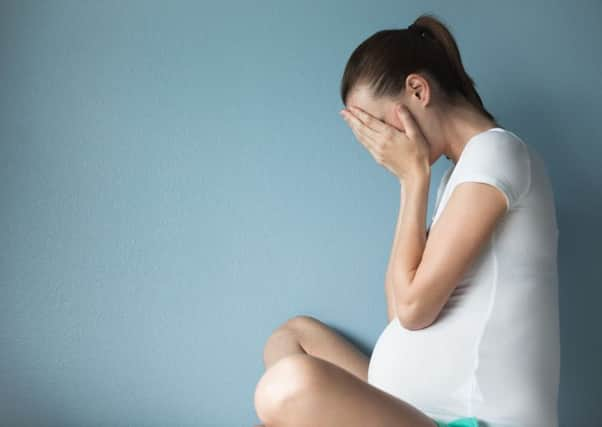'˜Irish feted first baby of 2019 '“ but won't applaud first life terminated'


Dawn McAvoy of ‘Both Lives Matter’ was reflecting on the launch of the Republic of Ireland’s new abortion services, which came into force on January 1.
A referendum in May gave overwhelming support for the measure by 66.4% to 33.6%.
Advertisement
Hide AdAdvertisement
Hide AdAs a result, Dublin now provides abortions up to week 12 of pregnancy, or where there is serious risk to the mother, or where the baby is likely to die shortly after birth.
Despite a spate of recent legal challenges, an abortion is currently only lawful in NI where the pregnancy seriously risks a woman’s health.
Ms McAvoy said: “On January 1, the Republic of Ireland celebrated the first baby to be born in 2019. That same day the country’s new legislation on abortion came in to effect. The first human life to be terminated will probably not be celebrated; publicly at least.”
She added: “We would urge our politicians [in NI] to resist the lobbying from abortion activists and instead provide a more hopeful future for women facing pregnancy crises, a future which is inclusive of them and their children.”
Advertisement
Hide AdAdvertisement
Hide AdNola Leach, chief executive of the charity Christian Action Research and Education, said the Republic’s new law provides little practical support for women.
“It only contains the ‘quick-fix’ of an abortion with little mention of extra funding for support services, counselling, or better provision of information, fostering and adoption for mothers,” she said.
There are 100,000 people in NI today, she said, who would not be alive had GB legislation been extended here; a recent Comres poll found 93% of people in NI agreed that “both lives matter” in a pregnancy, she added.
But Grainne Teggart of Amnesty said the new law and commencement of abortion services are “significant milestones” in a country which had “one of the most restrictive abortion laws in the world”.
Advertisement
Hide AdAdvertisement
Hide AdAmnesty welcomes the fact that women from NI can now access abortion services in the south, she said. However, this serves to underscore “the absurdity of the position women here now find themselves in” because they can board a train or plane for abortions in Dublin or GB but cannot access the same service in NI.
“We call on the secretary of state and UK government to ensure 2019 is the year change happens,” she added.
Alliance for Choice activist, Goretti Horgan, said the vast majority of southern abortions will be through pills prescribed by GPs – medication which she said women on both sides of the border have been using for over a decade.
“The change in the south is unlikely to help women here very much,” she said. “We can access abortions in the Republic but would have to pay.”
Advertisement
Hide AdAdvertisement
Hide AdIn addition, the three-day ‘cooling off period’ now required to access abortion in the south means an NI woman would have to travel south twice in a week for pills that she could order online in NI without leaving her house.
Ex-Sinn Fein TD Pedar Tobin, who is hoping to set up an all-Ireland pro-life political party, lamented the south’s new abortion services.
“Leo Varadkar stated this week that the introduction of one of the most extreme abortion regimes in Europe was a sign of social progress,” he told the News Letter. “It shows how upside down our world has become that when the state seeks to end the lives of thousands of individual human beings it is considered progress.”
The majority of women who seek abortions “do so for socio-economic reasons” yet nobody addressed this during the referendum debate, he said. “Shockingly, FF, SF and the SDLP are in lockstep in the promotion of abortion services across Ireland north and south,” he added.
Sinn Fein MLA Megan Fearon said: “Sinn Fein supports access to quality and safe abortion care for all women on the island of Ireland.”